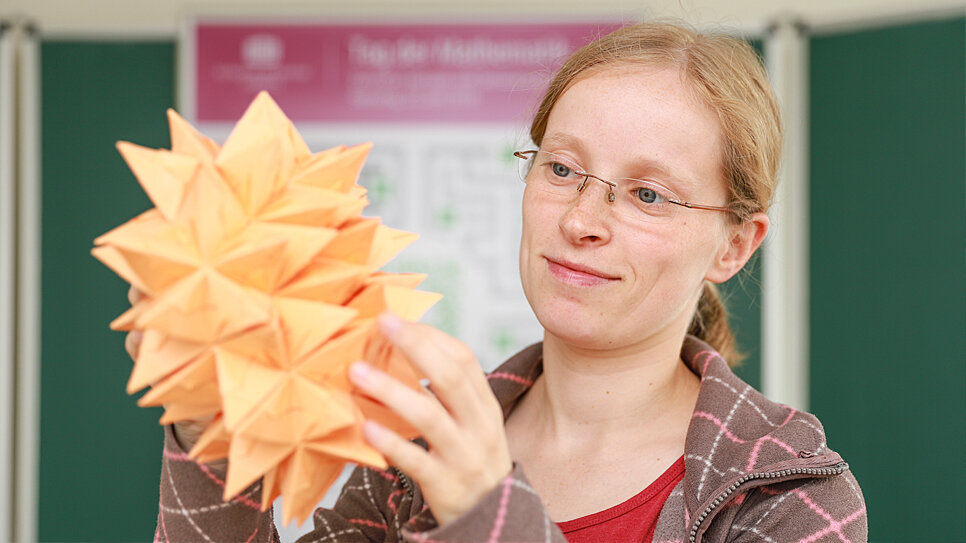1.6 Million Euros for AI Junior Research Group
Mathematician Dr. Franziska Nestler from Chemnitz, Germany, applied for BMBF funding to establish a junior research group at Chemnitz University of Technology in the field of artificial intelligence
-

Dr. Franziska Nestler from Chemnitz University of Technology raised BMBF funds of 1.6 million euros to establish an AI junior research group. The project will focus on the efficient use of Big Data. The photo was taken during the Day of Mathematics 2018 at Chemnitz University of Technology. Photo: Jacob Müller
Dr. Franziska Nestler, research assistant at the Professorship of Applied Functional Analysis at Chemnitz University of Technology, has successfully applied for funding to establish a junior research group in the field of Artificial Intelligence. The project, called Fast Algorithms for Transparent Recommendation Systems (SAlE) is funded with 1.6 million Euros by the Federal Ministry of Education and Research (BMBF) within the framework of Guidelines for the Promotion of Female AI Junior Researchers over a period of four years. Funding will start on 1st October 2020, with the first step being the establishment of a junior research group by Dr. Franziska Nestler.
This project by the mathematician from Chemnitz University of Technology is thus one of the 20 excellent projects nationwide that have been selected and will be funded according to a two-stage and highly selection procedure.
The project will focus on questions concerning the efficient handling of large, high-dimensional data sets (Big Data).
Close networking between Chemnitz, Berlin and application partners
The funded project consists of three subprojects. In these, the junior research group will work closely with the Chemnitzer professorships for Applied Functional Analysis as well as for Scientific Computing (Prof. Dr. Martin Stoll) and for Applied Mathematics (Prof. Dr. Gabriele Steidl) at the TU Berlin. In addition, close networking with application partners from industry is planned for the establishment of this interdisciplinary research group. Thus, the developed methods will be tested directly in application-relevant scenarios.
Background: Relevance of Big Data analysis
The digitalization of our society is generating enormous amounts of data. Analyzing this data and efficiently filtering out desired information is of great importance.
Due to the complexity of this task with huge amounts of data, the use of artificial intelligence is almost unavoidable. A major challenge is to develop procedures that enable the traceability of analysis results. This is because most common procedures in the AI field are only transparent to a certain degree and allow only limited traceability of data analysis processes. The phenomenon of non-traceability of AI processes becomes relevant, for example, when AI-supported decisions are made whose background is not transparent to those affected, for example when granting loans.
This is precisely where the "SAlE" project comes in. In order to develop suitable procedures for data analysis that allow interpretable conclusions to be drawn about their decision-making, methods for high-dimensional Fourier analysis are to be used in particular. Within the scope of the so-called Fourier analysis, signals are decomposed into frequency components, which is of central importance in signal processing and data transmission, among other things.
Furthermore, methods for machine learning as well as from the field of image processing be will included in the project.
Further information is available from Dr. Franziska Nestler, Tel. +49 (0)371 531 32839, E-Mail franziska.nestler@mathematik.tu-chemnitz.de
(Author: Matthias Fejes / Translation: Chelsea Burris)
Mario Steinebach
08.09.2020




